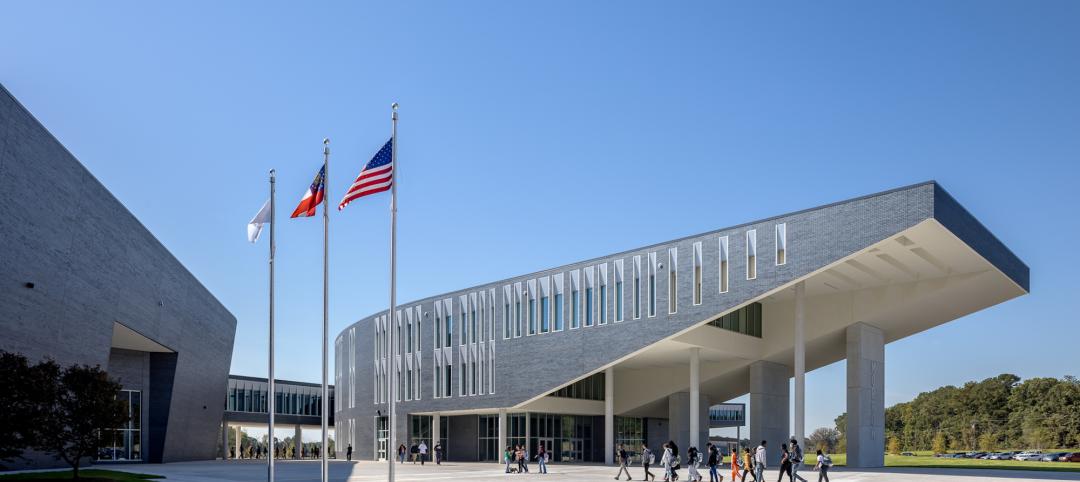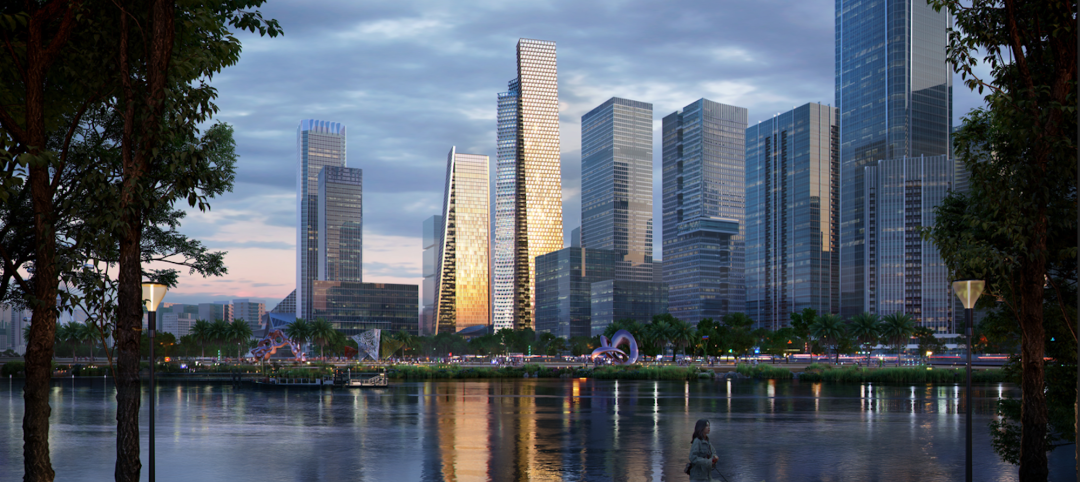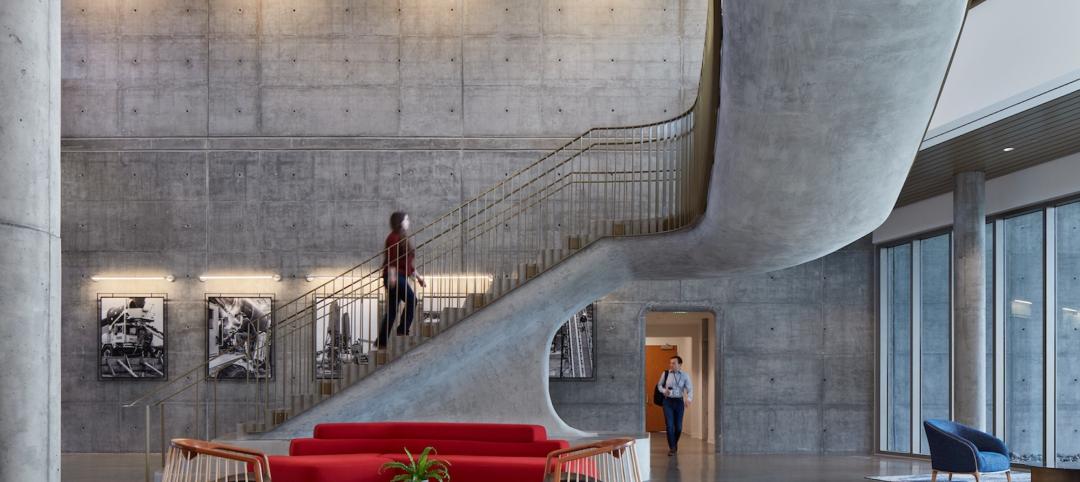Dow Building Solutions announced two Research and Development (R&D) test facilities located at the Dow Building Solutions’ North American headquarters in Midland, Mich.
The R&D “Wall Assembly Research Center” and “Spray Foam Application Technology Research Facility” have been built to test and evaluate insulation, air sealing and weatherization systems in a controlled lab environment in order to provide customers with real-world data of how the products will work together and perform and function in the field.
The Wall Assembly Research Center is a 1,600 sf wall system research lab that has over 30 interchangeable wall sections that enables Dow to test various residential and commercial wall systems.
It also allows for the testing of exterior wall system components to see how they stand up to outside elements and perform in a cold climate zone. Systems being tested include rigid and spray insulations, exterior cladding, and various framing techniques, in all cardinal directions.
The Wall Assembly Research Center is wired with a state-of-the-art monitoring system that allows researchers to collect, analyze and process the performance of each of these interchangeable wall systems over extended periods of time.
Dow collaborated very closely with Building Science Corporation to design and construct this unique facility in a way that the data collected can help further develop Dow building envelope products and systems and provide answers to the most relevant industry questions.
The second research test facility is a 2,000 sf spray booth and lab that enables researchers to evaluate the application of new spray foam chemistries and methods. The Spray Foam Application Technology Research Facility was created to test liquid-applied construction solutions and materials, such as spray polyurethane foams and weatherproofing systems, to help better understand how spray products work in both small and large-scale applications while using a variety of application equipment such as refillable cylinders and 2-component high-press spray rigs. Beyond testing and gathering data on chemistries and application methodologies, the research facility is also being used to provide education and training on the application and safe handling of these spray foam products that contribute to the creation of a better performing building envelope. BD+C
Related Stories
K-12 Schools | Feb 18, 2023
Atlanta suburb opens $85 million serpentine-shaped high school designed by Perkins&Will
In Ellenwood, Ga., a southeast suburb of Atlanta, Perkins and Will has partnered with Clayton County Public Schools and MEJA Construction to create a $85 million secondary school. Morrow High School, which opened in fall 2022, serves more than 2,200 students in Clayton County, a community with students from over 30 countries.
Museums | Feb 17, 2023
First Americans Museum uses design metaphors of natural elements to honor native worldview
First Americans Museum (FAM) in Oklahoma City honors the 39 tribes in Oklahoma today, reflecting their history through design metaphors of nature’s elements of earth, wind, water, and fire. The design concept includes multiple circles suggested by arcs, reflecting the native tradition of a circular worldview that encompasses the cycle of life, the seasons, and the rotation of the earth.
Architects | Feb 17, 2023
Architect of the Capitol fired by President Biden after strong bipartisan criticism
Architect of the Capitol J. Brett Blanton was let go this week following alleged abuse of authority, misuse of government property, and wasted taxpayer money.
High-rise Construction | Feb 15, 2023
Bjarke Ingels' 'leaning towers' concept wins Qianhai Prisma Towers design competition
A pair of sloped high-rises—a 300-meter residential tower and a 250-meter office tower—highlight the Qianhai Prisma Towers development in Qianhai, Shenzhen, China. BIG recently won the design competition for the project.
Senior Living Design | Feb 15, 2023
Passive House affordable senior housing project opens in Boston
Work on Phase Three C of The Anne M. Lynch Homes at Old Colony, a 55-apartment midrise building in Boston that stands out for its use of Passive House design principles, was recently completed. Designed by The Architectural Team (TAT), the four-story structure was informed throughout by Passive House principles and standards.
Designers | Feb 13, 2023
Hoffmann Architects + Engineers Establishes Diversity Advancement Scholarship Fund
Hoffmann Architects + Engineers, a design firm specializing in the rehabilitation of building exteriors, contributed $25,000 to fund the Hoffmann Diversity Advancement Scholarship, administered through the Connecticut Architecture Foundation. The fund provides scholarships for students from underrepresented racial or ethnic groups who are seeking degrees in architecture or engineering.
Office Buildings | Feb 12, 2023
Smyrna Ready Mix’s new office HQ mimics the patterns in the company’s onsite stone quarry
Designed by EOA Architects to showcase various concrete processes and applications, Smyrna Ready Mix's new office headquarters features vertical layering that mimics the patterns in the company’s stone quarry, located on the opposite end of the campus site. The building’s glass and concrete bands are meant to mirror the quarry’s natural contours and striations.
Multifamily Housing | Feb 11, 2023
8 Gold and Platinum multifamily projects from the NAHB's BALA Awards
This year's top BALA multifamily winners showcase leading design trends, judged by eight industry professionals from across the country.
Multifamily Housing | Feb 10, 2023
Dallas to get a 19-story, 351-unit residential high-rise
In Dallas, work has begun on a new multifamily high-rise called The Oliver. The 19-story, 351-unit apartment building will be located within The Central, a 27-acre mixed-use development near the Knox/Henderson neighborhood north of downtown Dallas.
Sustainability | Feb 9, 2023
New guide for planning, designing, and operating onsite water reuse systems
The Pacific Institute, a global nonpartisan water think tank, has released guidance for developers to plan, design, and operate onsite water reuse systems. The Guide for Developing Onsite Water Systems to Support Regional Water Resilience advances circular, localized approaches to managing water that reduce a site’s water footprint, improve its resilience to water shortage or other disruptions, and provide benefits for local communities and regional water systems.

















